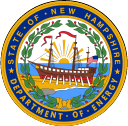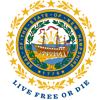News
Contact
OCA to PUC: Approve the Triennial Energy Efficiency Plan
Expert witnesses for the Office of the Consumer Advocate file written testimony in support of NHSaves
Via written testimony filed on September 12, the Office of the Consumer Advocate (OCA) has formally urged the Public Utilities Commission (PUC) to approve the proposed 2024-2026 Triennial Energy Efficiency Plan as proposed by the state’s electric and natural gas utilities.
“We commend our electric and natural gas utilities for having charted an excellent course for the future of our NHSaves programs,” said Consumer Advocate Donald Kreis. “Our two expert witnesses have done a deep dive into the proposed Triennial Plan. Their review shows the utilities have proposed a well-designed and cost-effective program of ratepayer-funded energy efficiency in light of the guidance and guardrails adopted by the Legislature last year.”
Most notably, last year’s legislation (House Bill 549) limits energy efficiency charges on customer bills to their 2020 levels, adjusted for inflation. And it requires the programs to use the Granite State Test, a measure of cost-effectiveness, originally approved by the PUC in 2019, that recognizes New Hampshire’s distinct public policy goals in the energy realm.
“The Triennial Plan meets the requirements of HB 549,” concluded the OCA’s expert witnesses, Tim Woolf and Danielle Goldberg of the consulting firm Synapse Energy Economics. “For every dollar spent on energy efficiency programs there will be $2.3 in benefits experienced by utility customers. In aggregate, all the [NHSaves] programs combined are expected to result in $283 million in net benefits to utility customers.”
“The Triennial Plan will help overcome the market barriers that inhibit customers from adopting energy efficiency measures on their own,” added Mr. Woolf and Ms. Goldberg. “These barriers are the reason why utility-funded energy efficiency programs exist in the first place; if customers were able to adopt cost-effective energy efficiency measures on their own, there would not be a need for utility-funded energy efficiency programs in any state."
Added the two expert witnesses: “The fact that nearly every state in the United States offers utility-funded energy efficiency programs clearly indicates that legislators, commissions, and other decision-makers around the country recognize that market barriers to energy efficiency still exist. . . . The NHSaves programs are designed to overcome the market barriers that inhibit customers from adopting cost-effective energy efficiency in their homes and businesses."
In their written testimony, Mr. Woolf and Ms. Goldberg provided a detailed analysis of the discount rate that should apply to the energy efficiency programs funded by New Hampshire ratepayers and offered via NHSaves. The question is an important one because the cost of NHSaves efficiency measure are paid in full, up front, whereas the benefits of the measures accrue over time – for periods of up to 30 years.
Therefore, the discount rate represents the math required to determine the present value of all those future energy efficiency benefits so they can be compared, fairly, to the up-front costs.
Noting that the NHSAves utilities propose to use a discount rate of 2.78 percent annually, after an inflation adjustment, Mr. Woolf and Ms. Goldberg praised this proposal. “The choice of discount rate is a policy decision that should be informed by each jurisdiction’s energy policies and goals,” they stated in their written testimony. “A low-risk discount rate is the best option for evaluating the New Hampshire energy efficiency programs” because it is ”consistent with the goals of the energy efficiency programs [and] reflects the interests of all customers in aggregate.”
Consumer Advocate Kreis lauded this analysis from the OCA’s expert witnesses in particular. “Based on statements and questions that have emanated from the PUC over the past year or so, I am worried that our regulators are drawn to the utilities’ cost of capital – in the range of 7 to 8 percent – as the appropriate discount rate for evaluating the cost effectiveness of the NHSaves programs,” Kreis said. “In my judgment this would be a grievous mistake that would decimate ratepayer funded energy efficiency in New Hampshire by making most of the programs look like they are not cost-effective.”
“It would be completely inappropriate to use the utilities’ cost of capital as the discount rate, for the simple reason that the NHSaves programs are entirely ratepayer-funded – no utility capital is involved,” added the Consumer Advocate.
By statute, the Commission must rule on the proposed Triennial Energy Efficiency Plan by November 30. Accordingly, there will be a series of hearings before the PUC, currently scheduled for October 18, 24, 25, and 31. Three years ago, on November 12, 2021, the Commission rejected the proposed 2021-2023 Triennial Energy Efficiency Plan, which prompted the Legislature to act in February 2022 to assure the future of the programs.
“I expect a much smoother process this time around,” said Consumer Advocate Kreis. “The PUC knows there is broad bipartisan consensus in favor of the NHSaves programs, and the utilities have done a good job of limiting the size of the programs as required by the 2022 legislation. I therefore look forward to a swift and unambiguous endorsement of the new Triennial Energy Efficiency Plan from the Commission.”
The Consumer Advocate urged the state's residential ratepayers to express their own support for the proposed Triennial Energy Efficiency Plan. He noted that ratepayers can do so by sending an e-mail to puc@oca.nh.gov, referring to Docket No. DE 23-068 in the subject line. He noted that the proposed Triennial Plan can be viewed in its entirety via the page for Docket No. DE 23-068 in the Commission's virtual file room, where the OCA's written testimony (and that of other parties) will also appear.



